Prostitution, drugs alleged in State Department memo
updated 6:39 AM EDT, Wed June 12, 2013
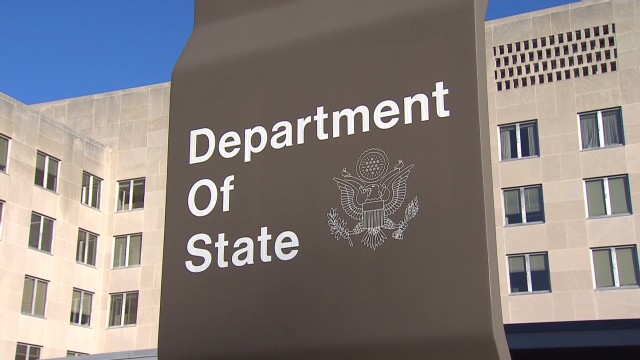
State Department investigations squelched?
STORY HIGHLIGHTS
- House committee chief says he's asked his staff to begin an investigation
- State Department memo alleges a drug ring operated near the U.S. embassy in Iraq
- An ambassador allegedly engaged prostitutes, a memo says
- Investigations into the allegations, in some cases, were stymied
The timeline surrounding
the allegations places the incidents during former Secretary of State
Hillary Clinton's tenure, opening the possibility that a widening
scandal might taint both her record and her possible political aspirations.
Clinton has also taken heat for the department's response to the
September 2012 attack on the U.S. diplomatic mission in Benghazi, Libya.
The memo itself,
purportedly written by Ambassador Larry Dinger, describes some of the
information as coming from office chatter.
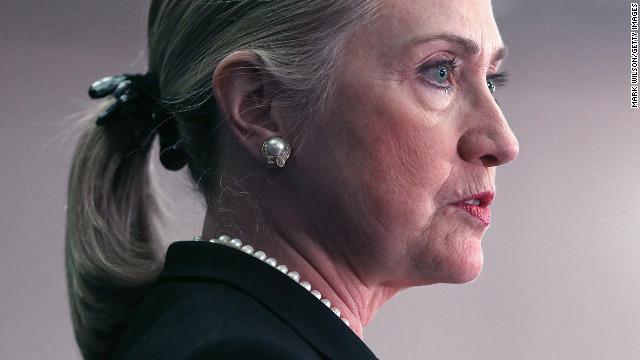 Photos: Clinton's political career
Photos: Clinton's political career
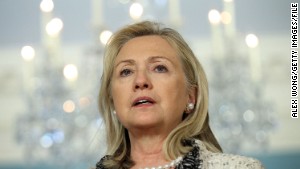 What does the memo mean for Clinton?
What does the memo mean for Clinton?
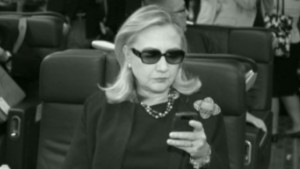 Hillary Clinton's new Twitter page
Hillary Clinton's new Twitter page
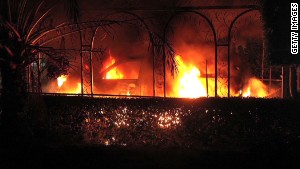 CNN Explains: The Benghazi attacks
CNN Explains: The Benghazi attacks
"Sometimes the sources
are one or more agents who became aware of the case from colleagues in
what, given cubicles, can be a collegial environment," the memo says.
Regarding the latest
allegations, CNN was provided the documents by a lawyer for a
whistle-blower who is a former senior inspector general investigator.
They include:
• An active U.S.
ambassador "routinely ditched his protective security detail in order to
solicit sexual favors from both prostitutes and minor children," the
memo says. The ambassador's protective detail and others "were well
aware of the behavior," the memo asserts. When a diplomatic security
officer tried to investigate, undersecretary of state for management Patrick Kennedy allegedly ordered the investigator "not to open a formal investigation."
On Tuesday, CNN obtained a statement from the ambassador, who vigorously denied the allegations, calling them "baseless."
A source close to the
investigation of the ambassador told CNN that the ambassador's security
detail reported to the inspector general that the ambassador would leave
his house at night without notifying the detail. The detail followed
the ambassador and saw the ambassador once go to a park that's known for
illegal activity, the source told CNN. The detail said they never
witnessed the ambassador engage in any sexual activity, the source said.
The ambassador went to
Washington and was asked what he was doing and he denied any wrongdoing,
the source told CNN. The ambassador explained that sometimes he fights
with his wife, needs air and he goes for a walk in the park because he
likes it.
Kennedy also issued a
statement Tuesday, saying it is his responsibility "to make sure the
department and all of our employees -- no matter their rank -- are held
to the highest standard, and I have never once interfered, nor would I
condone interfering, in any investigation."
• A State Department
security official in Beirut allegedly "engaged in sexual assaults"
against foreign nationals working as embassy guards. The security
official, the Office of the Inspector General says, was also accused of
committing "similar assaults during assignments in Baghdad, and possibly
Khartoum and Monrovia." The office's memo says that an inspector
general's investigator who went to Beirut to try to conduct an
investigation was not given enough time to complete the job.
• A member of Clinton's
security detail allegedly "engaged prostitutes while on official trips
in foreign countries." The inspector general's agent assigned to
investigate "concluded" that the "prostitution problem was endemic."
• In Iraq, an
"underground drug ring" may have been operating near the U.S. Embassy
and "supplying" drugs to State Department security contractors, but an
agent sent to investigate the allegations was prevented from completing
the job.
The allegations were first reported Monday by CBS.
State Department spokeswoman Jen Psaki responded Monday.
"We hold all employees
to the highest standards," she said. "We take allegations of misconduct
seriously and we investigate thoroughly. All cases mentioned in the CBS
report were thoroughly investigated and under investigation, and the
department continues to take action."
During a Tuesday State
briefing with reporters, Psaki reiterated that the memo contains
"unsubstantiated allegations" and that some cases are ongoing and some
are closed. But she would not, though repeatedly pressed by reporters,
specify exactly which ones were open or closed.
"As a matter of policy, I'm not going to talk" about specific cases, she said.
"We take every allegation seriously," Psaki added. "We are seeing through the process."
On Tuesday, Nicholas
Merrill, a spokesman for Hillary Clinton, said Clinton was completely
unaware of any of the investigations mentioned in the Office of the
Inspector General's reports and memos, including the case involving her
personal security detail allegedly soliciting prostitutes.
"We learned of it from the media and don't know anything beyond what's been reported," Merrill told CNN in a written statement.
Clinton officially left her post in February.
Also Tuesday, U.S. Rep.
Ed Royce, R-California, chairman of the House Foreign Affairs Committee,
said he has asked his staff to begin an investigation into the
allegations, and sent a letter to Secretary of State John Kerry
demanding an explanation.
"The notion that any or
all of these cases would not be investigated thoroughly by the
Department is unacceptable," Royce wrote in his letter to Kerry.
CNN obtained a draft,
dated December 2012, of a report by the inspector general's office
evaluating the performance of the department's Bureau of Diplomatic
Security Special Investigations Division.
The report says that the
bureau "lacks a firewall" that would preclude higher-ups from
"exercising undue influence in particular cases."
The bureau doesn't have a
manual with approved guidelines on how to investigate cases, the report
also says. Investigators with the inspector general's office
"discovered uncertainty" among state agents about how to conduct
thorough investigations, and noted that not going through the proper
mechanisms can "ruin" a potential criminal investigation.
The report also calls
the department's Criminal Investigations Division "unwieldy" and says
that "frequent agent turnover" makes it harder for the Bureau of
Diplomatic Security to conduct investigations.
The inspector general's
office published a February 2013 final report whose key findings are,
largely, the same as stated in the December 2012 draft.
The division's current
management structure, the report says, does not "foster independence
from career pressures and creates significant potential for undue
influence, favoritism, and potential retribution.
No comments:
Post a Comment